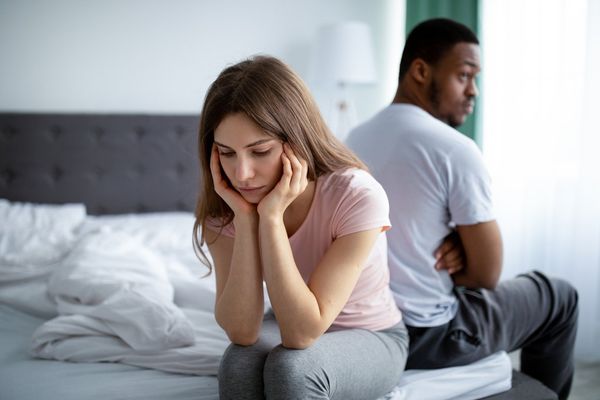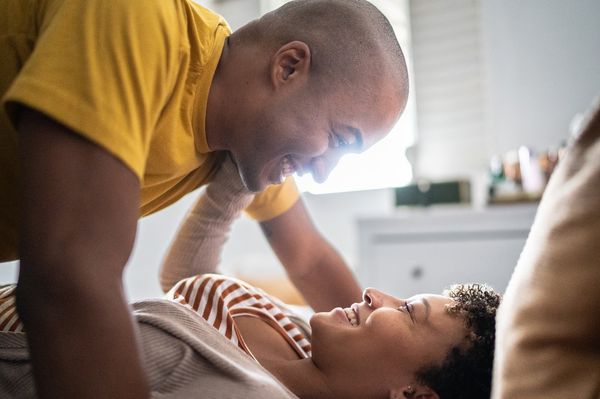I recently spoke with Dr. Emily Jamea, a certified sex therapist, the president and clinical director of REVIVE, and a member of HealthyWomen's Women's Health Advisory Council, about how to maintain sexual health.
This is the second installment of a two-part series. Read part one here. The transcript has been edited for clarity and length.
HealthyWomen: In our last conversation, we discussed the importance of doing regular kegel exercises and the use of a vaginal dilator or vibrator to maintain a healthy vagina (and reduce pain during sex). Does this apply to women of all sexual orientations?
Dr. Emily Jamea: Absolutely. No matter your sexual orientation, your pelvic floor muscles are working to hold up your pelvic organs, so they need to stay strong. From a purely physiological body health perspective, just as you try to keep all your muscles strong as you age, the pelvic floor muscles shouldn't be neglected, no matter your orientation.
HealthyWomen: Do you think some middle-aged women are reluctant to ask their health care providers about vaginal dilators and/or vibrators or even to discuss their sexual health?
Dr. Emily Jamea: I don't know that it's so much of a reluctance as not knowing they should be seeking help or getting more information about this. A lot of women don't even know to ask the question, and health care providers aren't often volunteering the information until there's a problem.
Seeking help to maintain healthy sexuality depends on your culture, your belief system around sexuality, and how much you value sexual health. I see a lot of women who may not be very happy in their relationships, and so now they can say, "I'm postmenopausal; I don't want to have sex anymore" and use that excuse to avoid getting help [for their relationship]. When it comes to the complexity of female sexual desire, having a healthy relationship is a big piece of the pie. The changing hormones are a small piece of the pie.
I think it's really frustrating for postmenopausal women because men have andropause and, as their testosterone levels decline, there is a more direct effect on their ability to get an erection, but they can pop a pill. We just have not come up with something comparable to that pill for women.
Healthy Women: What can middle-aged women do to maintain their sexual health?
Dr. Emily Jamea: Getting regular exercise is important and has shown to really boost sexual desire — nothing crazy or strenuous but just getting out for long walks a few times a week — for multiple reasons, but especially because of the neurochemicals that are released when we exercise. Anything you're doing to maintain your body awareness and nurture your body can really help.
Managing your mental health is also important. Many women suffer from mood swings during menopause. Not feeling like yourself can dampen your desire for sex. Women shouldn't be afraid to seek mental health counseling if need be.
Make sure your relationship stays strong. Keep the lines of communication open with your partner and spend quality time together. Find ways to enjoy the freedom that comes with being empty nesters.
Still, talk to your health care provider because there are hormone replacement options, such as topical estrogen creams that women can apply to bring estrogen directly to that vaginal tissue in more severe cases of vaginal atrophy. And [the creams are] not absorbed systemically, so that can be helpful for women. There are some options that can really help women when it comes to all of the changes that happen with menopause, especially in some of those more severe cases.
HealthyWomen: Are we ever too old for sex?
Dr. Emily Jamea: No! Quite the opposite. Historically, sex research has focused primarily on sexual dysfunction and then there's been a good bit of research on sexual satisfaction. There's this emerging area of research that I'm active in as well, on what really constitutes an optimal sexual experience. [We're studying] what makes an extraordinary sexual experience different from an ordinary sexual experience.
I think that when we have the right tools, sex gets better as we age for multiple reasons. You're comfortable in your own skin, you're comfortable in your relationship, hopefully. You've got all these experiences together that can translate into a lot more meaningful sex; people tend to be less inhibited as they get older. We're finding that people who are in long-term happy monogamous relationships are having better sex than people who are young and on the dating scene, so it's really exciting.
Follow Emily Jamea on Instagram @dremilyjamea.
- Sex After 50 ›
- Ignorance Isn’t Bliss When It Comes to Sex in Menopause ›
- Sex at Midlife ›
- How to Have the Best Sex of Your Life After Menopause ›
- How to Rekindle Your Sexual Connection at Midlife ›
- Can Women Improve Our Sexual Health at Midlife? ›
- Yes, Middle-Aged Women Do Want to Have Sex ›







